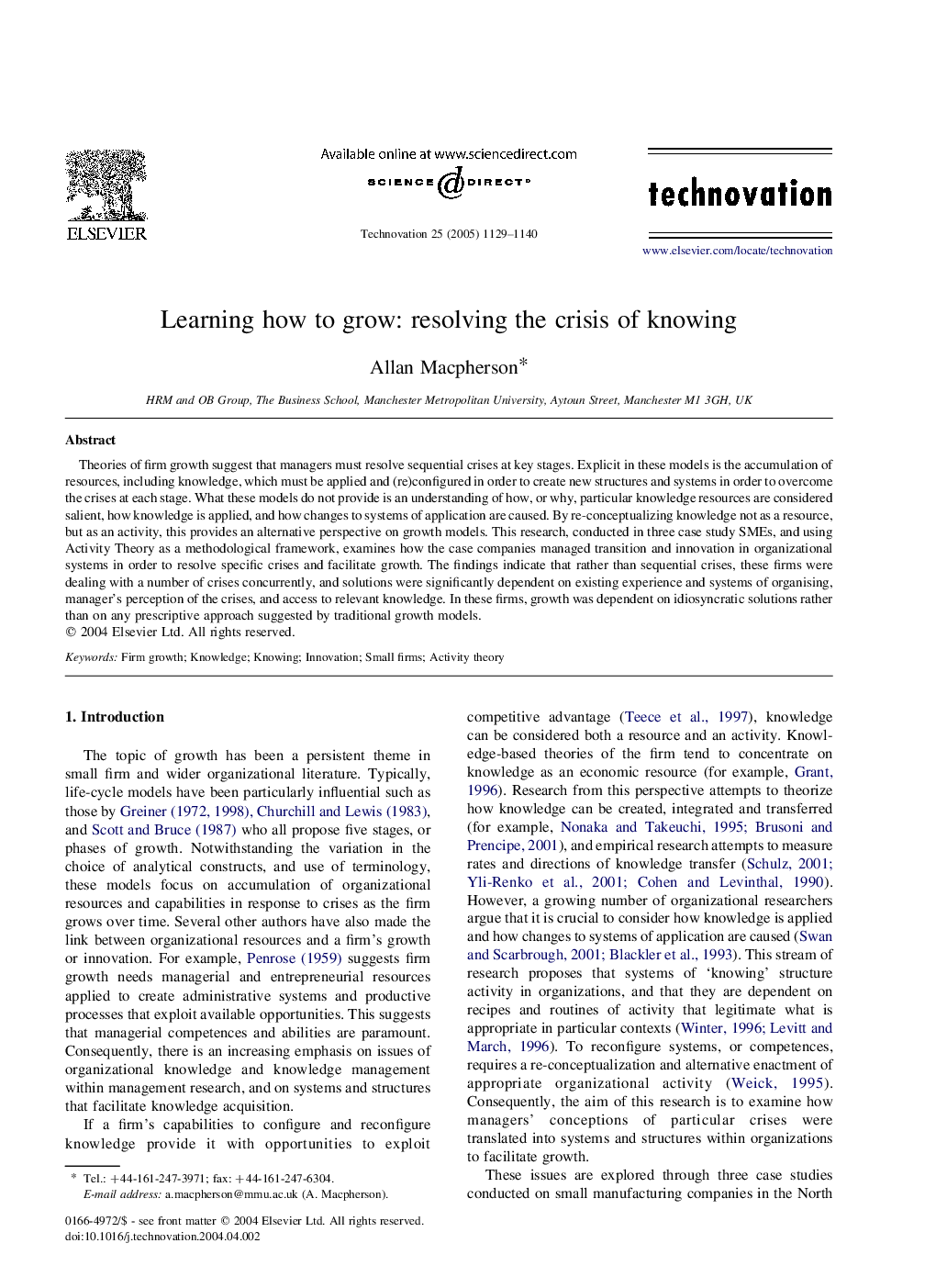| Article ID | Journal | Published Year | Pages | File Type |
|---|---|---|---|---|
| 10495022 | Technovation | 2005 | 12 Pages |
Abstract
Theories of firm growth suggest that managers must resolve sequential crises at key stages. Explicit in these models is the accumulation of resources, including knowledge, which must be applied and (re)configured in order to create new structures and systems in order to overcome the crises at each stage. What these models do not provide is an understanding of how, or why, particular knowledge resources are considered salient, how knowledge is applied, and how changes to systems of application are caused. By re-conceptualizing knowledge not as a resource, but as an activity, this provides an alternative perspective on growth models. This research, conducted in three case study SMEs, and using Activity Theory as a methodological framework, examines how the case companies managed transition and innovation in organizational systems in order to resolve specific crises and facilitate growth. The findings indicate that rather than sequential crises, these firms were dealing with a number of crises concurrently, and solutions were significantly dependent on existing experience and systems of organising, manager's perception of the crises, and access to relevant knowledge. In these firms, growth was dependent on idiosyncratic solutions rather than on any prescriptive approach suggested by traditional growth models.
Related Topics
Social Sciences and Humanities
Business, Management and Accounting
Business and International Management
Authors
Allan Macpherson,
